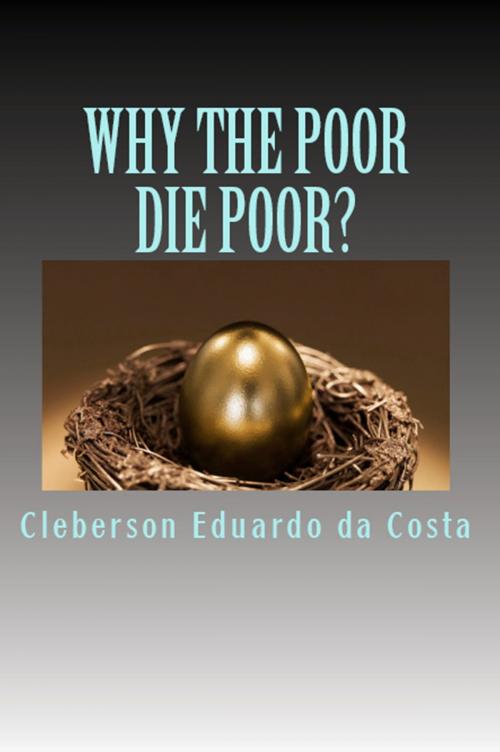WHY THE POOR DIE POOR?
Nonfiction, Social & Cultural Studies, Social Science, Cultural Studies, Customs & Traditions, Science & Nature, Science, Other Sciences, Philosophy & Social Aspects, Business & Finance, Finance & Investing, Finance| Author: | CLEBERSON EDUARDO DA COSTA | ISBN: | 1230000270380 |
| Publisher: | ATSOC EDITIONS | Publication: | September 25, 2014 |
| Imprint: | 1 | Language: | English |
| Author: | CLEBERSON EDUARDO DA COSTA |
| ISBN: | 1230000270380 |
| Publisher: | ATSOC EDITIONS |
| Publication: | September 25, 2014 |
| Imprint: | 1 |
| Language: | English |
(A5, 112 P.) - Today, at the dawn of the 21st century, according to more recent UN data, over one billion people (in their great majorities in poor and/or underdeveloped countries of Africa, Asia and South America) are affected by states of poverty extreme.
That is, approx. from 15% to 20% of the world's population, for various reasons, are living in poverty, undernourished, below the so-called poverty line.
This world-renowned population (which lives below the poverty line, on less than one or two dollars a day) is identified by the same UN as that of individuals who are not part of the economically active population.
That is, it consists of individuals who do not participate - directly and/or systematically - in the production of GDP (gross domestic product) through their countries. In other words, these people are also identified and/or classified (according to this same UN), not as poor, but as miserable, because they are often unemployed, without any kind of fixed income, and also by other factors, such as:
Because they belong to people who are affected by civil wars;
Natural disasters;
Historical extreme social inequalities, etc., surviving (not living) in considered degrading conditions.
Our problem here in this book, so, as in all of the series "Prosperity Secrets", it is important to point out, is not directed to, those considered destitute, living below the so-called poverty line, since we think that overcoming social exclusion, as extreme as they are and/or are these cases of misery here described above will only be able to be effectively combated and/or eradicated through equitable public policies, not palliative, held in global scale.
(A5, 112 P.) - Today, at the dawn of the 21st century, according to more recent UN data, over one billion people (in their great majorities in poor and/or underdeveloped countries of Africa, Asia and South America) are affected by states of poverty extreme.
That is, approx. from 15% to 20% of the world's population, for various reasons, are living in poverty, undernourished, below the so-called poverty line.
This world-renowned population (which lives below the poverty line, on less than one or two dollars a day) is identified by the same UN as that of individuals who are not part of the economically active population.
That is, it consists of individuals who do not participate - directly and/or systematically - in the production of GDP (gross domestic product) through their countries. In other words, these people are also identified and/or classified (according to this same UN), not as poor, but as miserable, because they are often unemployed, without any kind of fixed income, and also by other factors, such as:
Because they belong to people who are affected by civil wars;
Natural disasters;
Historical extreme social inequalities, etc., surviving (not living) in considered degrading conditions.
Our problem here in this book, so, as in all of the series "Prosperity Secrets", it is important to point out, is not directed to, those considered destitute, living below the so-called poverty line, since we think that overcoming social exclusion, as extreme as they are and/or are these cases of misery here described above will only be able to be effectively combated and/or eradicated through equitable public policies, not palliative, held in global scale.















